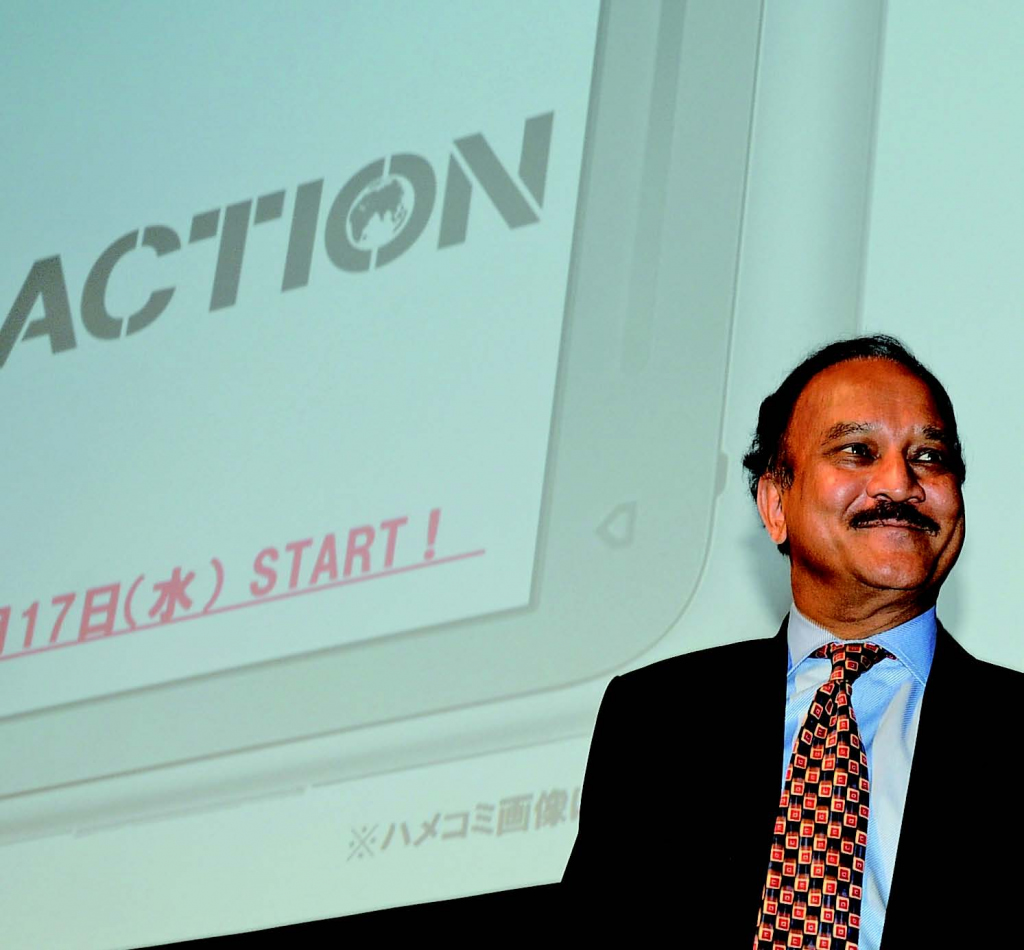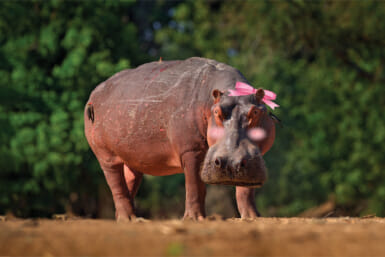Since 1962, the UNWFP has been on the very forefront of the fight against hunger, with 90 percent of its 12,000 staff working on the ground, many of them in remote places where no other international agencies are present. The WFP directly serves over 100 million people a year, delivering over four million tons of food annually into the hands of the targeted beneficiaries. At any given day, 5,000 trucks, 70 airplanes, and 30 ships are engaged in delivering food. For over 30 years Mohamed Saleheen has been an active member in this valuable work, serving in some of the world’s most dangerous and impoverished conflict zones.
How long have you been in Japan?
Nearing one year; I took up this assignment in October 2008.
Please tell us a bit about your organization.
The United Nations World Food Programme, or WFP, is the front line humanitarian agency fighting against hunger and poverty. WFP saves lives and protects livelihoods in emergency situations like conflicts and natural disasters, helps reduce chronic hunger and malnutrition, and assists to strengthen capacities of countries to reduce hunger. In 2008 WFP assisted 102 million people, including 62 million children in 78 countries. WFP provides food assistance to people in conflict countries as well as those affected by natural disasters. WFP helps to build generations through its school feeding program; helps improve the acute malnutrition among pregnant and nursing mothers and children under five by providing highly nutritious and supplementary food; and contributes to conserving the environment through its ‘food for work’ activities. It has contributed to the planting of five billion trees over the last 30 years. WFP also assists in development activities, and through its logistical expertise it helps to build and rehabilitate roads, ports, railways, and infrastructure in war-torn countries. In addition, WFP is the logistical arm of the United Nations, operating a Humanitarian Air Service operation for the aid communities based in several countries throughout the world.
What is your background and how did you arrive at your current position?
I am a humanitarian and a development worker. I have served the United Nations for about 30 years, mostly with the World Food Programme. I have served as WFP representative and country director in complex emergency operations and conflict situations such as Sudan and Sri Lanka, in Iraq in the aftermath of the Gulf war, and in Indonesia during the tsunami. I have also worked as head of Eastern Europe and the CIS region (based at our headquarters in Rome), as director of the human resources division, and as director of the United Nations Humanitarian Coordination office for Afghanistan. I studied political science and physics for my bachelor’s degrees and undertook post graduate studies in organizational development and planning and English.
What advice would you give to aspiring professionals and humanitarians?
Be positive and optimistic in attitude. Believe in whatever you do and do it confidently and with passion. Be respectful of others; communicate clearly and effectively. Build relationships in whatever profession you are in; be a member of the team wherever you are. Share your experience with others and be as helpful as you can. And remember—we all work to improve lives, including our own; life is a never-ending learning process.
What (or who) inspires you?
We see the life-saving impact at WFP every day in our existing work. The sense of being a part of the solution to global issues is very inspiring. Nothing is more tragic than seeing the life being taken away from a child in a mother’s arms, and nothing is more rewarding than to be able to stand with those mothers and children at their most desperate moment.
What do you do in your spare time?
I have had very little spare time so far, as even during weekends I have been giving presentations and lectures on humanitarian issues and WFP’s work. I would like to be able to carve out a little time for myself and reflect on music and composition, relax, and enjoy life.
External Link:
World Food Programme









